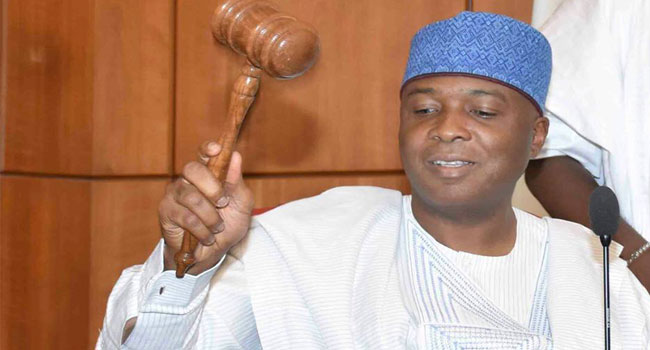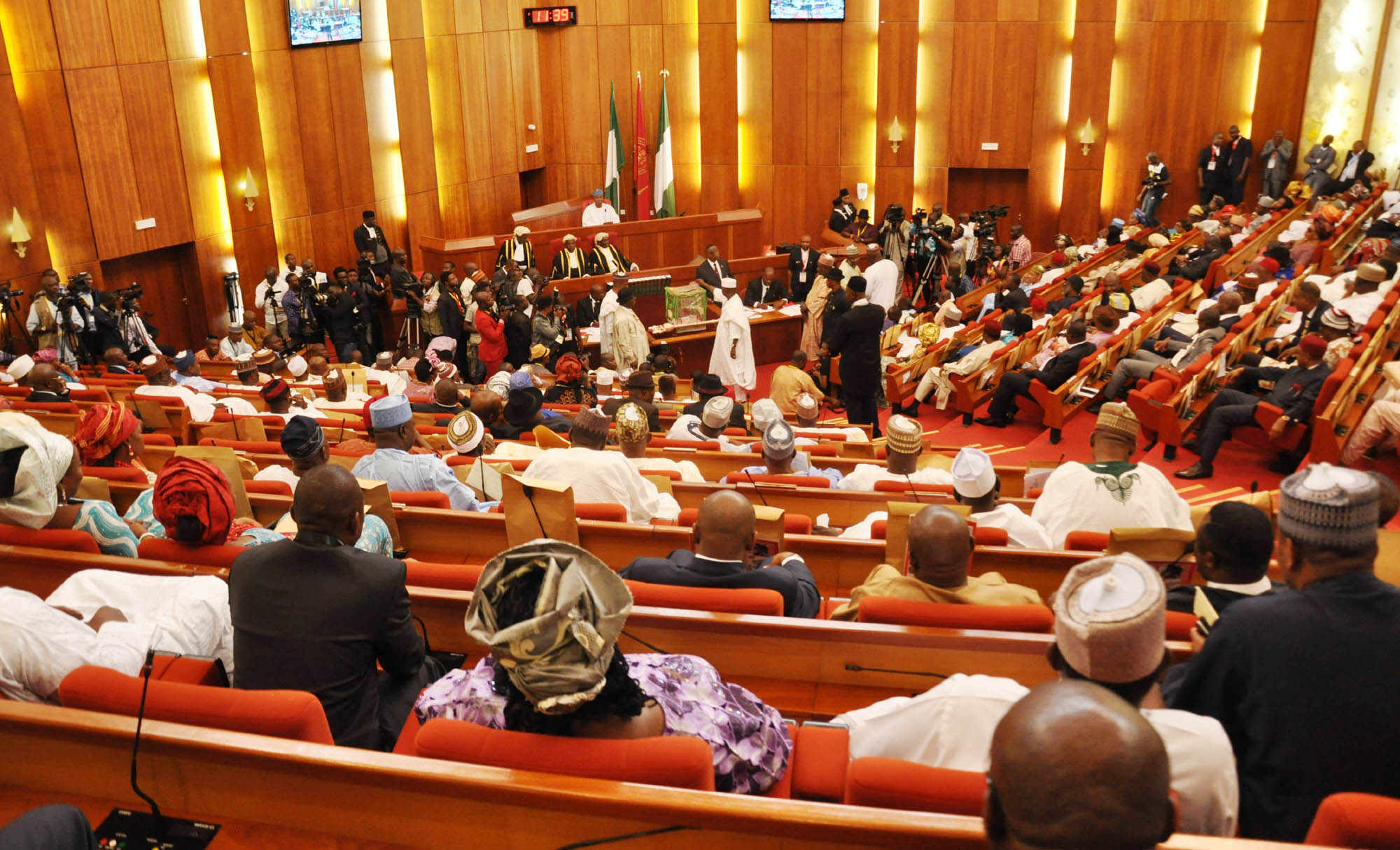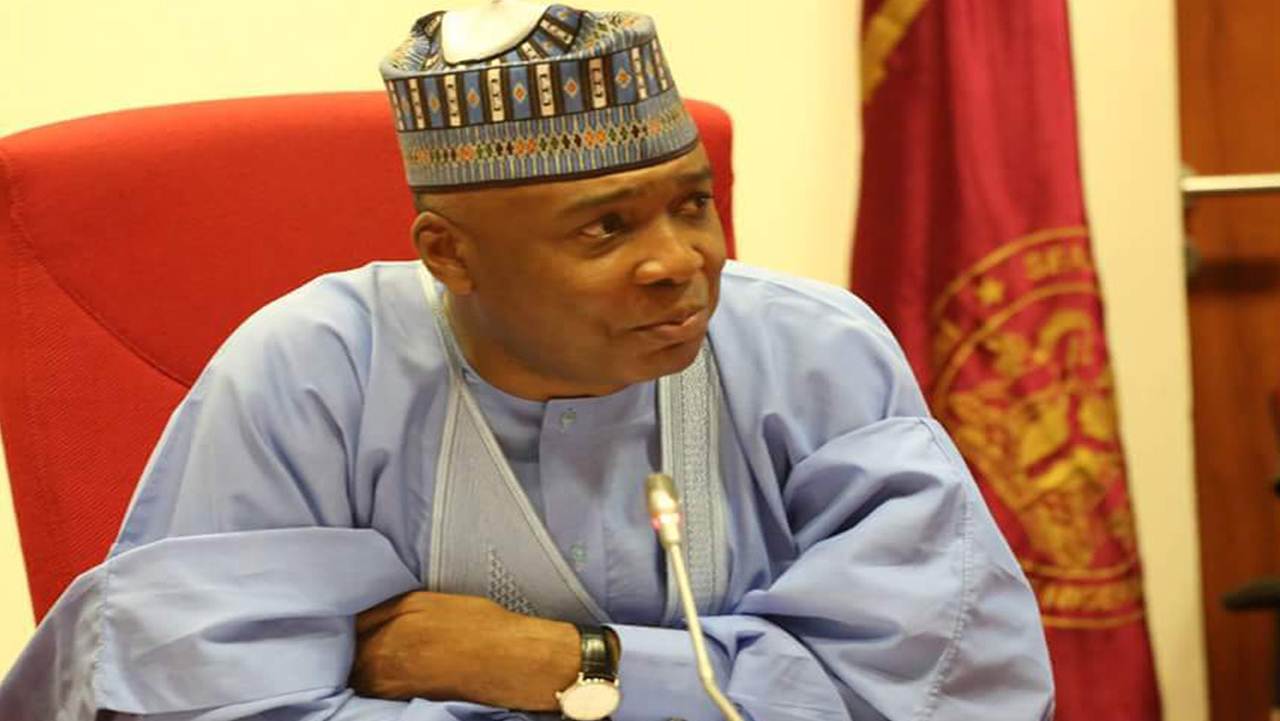Amidst petitions from various quarters, the Senate on Wednesday confirmed the nomination of Mr. Ayine Anthony Mkpe as the Auditor-General of the Federation.
This was even as the Senate confirmed the receipt of petitions against the nominee with some Senators also standing on his way of confirmation.
The Senate had at its plenary session on Wednesday, 14th December, 2016 considered the request of President Muhammadu Buhari for the confirmation of the appointment of Mr. Ayine Anthony Mkpe to take over the office of the Auditor-General of the Federation.
Consequently, the Senate, after careful deliberations referred the request to the Public Accounts Committee, for further legislative action.
Presenting the report of the Committee at the Wednesday’s plenary, the Chairman, Senator Andy Uba said, “the committee examined his educational qualifications, career progression, experience, character, federal character principles, understanding of the functions of the Office of the Auditor-General for the Federation, etc”.
Senator Uba, however, submitted that his committee did receive a couple of petitions against the nomination of Mr. Mkpe.
He said one of the petitioners stated that, “Mr. Ayine Anthony Mkpe is an Auditor-General for Local Governments with less scope than what he is going to meet.”
Another petitioner, according to the report, also averred that the nominee was not up to the rank of a Director in the civil service, whereas, “there are Senior Directors in the Office of the Auditor-General of the Federation that are qualified for the appointment.”
According to them, “the appointment of Mr. Ayine Anthony Mkpe will lower the morale of existing staff”.
On her part, Senator Binta Garba Masi (Adamawa North) vehemently kicked against the nomination of Mr. Mkpe on the ground that he is a cousin to the Head of Service of the Federation, Dr. (Mrs). Eyo Eta.
She also maintained that the Acting Chief Justice of Nigeria, Justice Walter Ononge comes from the same state with Mr. Mkpe and as such, would negate the spirit of Federal Character.
The Senate Minority Leader, Senator Godswill Akpabio, however, objected to the submission of Senator Binta, stressing that Mr. Mkpe was qualified for the position and his relationship with the aforementioned was inconsequential.
“This position was advertised nationally and internationally and many people applied for it, wherein the man came top.
“He was the best in capability, he was the best in competency and also professionalism. He also came top in oral interview. We are not confirming promotion here, we are confirming an appointment, which was sent to us by the President,” Akpabio said.
He also explained that, “Being an Auditor-General for Local Governments doesn’t mean Mr. Mkpe was an Auditor for a single local government area, but a supervising Auditor-General for all the local government areas in the state”.
“He is also on a consolidated salary as Permanent Secretary in the State”, he added.
While lending his voice in support of the nomination, Senator George Sekibo (Rivers West) said the office of the Auditor-General of the Federation was meant for a professional and the issues for determination should be, whether the nominee was qualified for the job, and whether the President has the power to appoint him.
“If the answers are in the affirmative, then the man should be confirmed,” Sekibo said.
In his ruling, the deputy Senate President, Ike Ekweremadu, who was presiding over the plenary, cautioned members of the Senate and the general public to be careful in the way they lay allegations or write petitions against seemingly qualified nominees of any position.
He added that the nominee for the Office of the Auditor-General of the Federation and the Head of Service of the Federation come from different geographical constituencies and, “even if they are related, it doesn’t preclude him from taking up the appointment, if he is qualified”.
“What we have done here today, is in alignment with the constitution of the Federal Republic of Nigeria and our standing rules,” Ekweremadu ruled.



